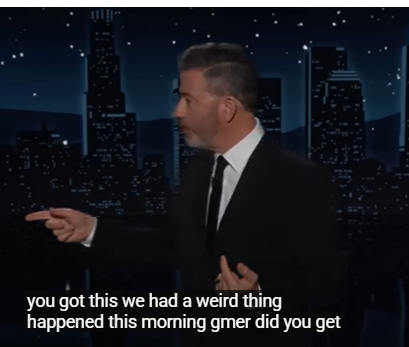Where do the words “sex” and “gender” come from, and where are they now in their semantic journey? A fellow reader of the Grammarphobia blog asked the question, and here is the answer!
Q: What explains the increasing use of “gender” in place of “sex” in sexual terminology? For me, prudishness doesn’t explain it.
A: The nouns “sex” and “gender” have been used interchangeably since the Middle Ages for either of the two primary biological forms of a species.
Although the two terms are still often used like that, they began to go their separate ways in the 20th century. Here’s the story.
English borrowed “sex” in the late 14th century from Middle French, but the ultimate source is classical Latin, where sexus referred to the “state of being male or female,” according to the Oxford English Dictionary.
When “sex” first appeared in English, the dictionary says, it meant “either of the two main categories (male and female) into which humans and many other living things are divided on the basis of their reproductive functions.”
The earliest citation in the OED is from Genesis 6:19 in the Wycliffe Bible of the early 1380s. In this passage, the term is used for the sex of the animals in Noah’s ark:
“Of all þingez hauyng soule of eny flesch: two þou schalt brynge in to þe ark, þat male sex & female: lyuen with þe” (“Of all things living of any flesh, two thou shall bring into the ark, that of the male sex & female, to live with thee”).
When “gender” appeared in the mid-14th century, it was a term for a grammatical subclass of nouns and pronouns distinguished by their different inflections.
The earliest OED citation, which we’ve expanded here, is from the gender-bending legend of St. Theodora of Alexandria, who is said to have betrayed her husband and then done penance by dressing as a man and entering a monastery:
“Hire name, þat was femynyn / Of gendre, heo turned in to masculyn. / Theodora hire name was, parde, / But Theodorus heo hiht, seide heo” (“Her name, which was feminine of gender, she turned into masculine. Theoroda, her name was, by God, but Theodorus she was called, she said”).
From “De S. Theododra,” circa 1350, in Sammlung Altenglischer Legenden (Collected Old English Legends), 1878, edited by Carl Horstmann.
In the 15th century, the OED says, “gender” came to mean “males or females viewed as a group,” which the dictionary describes as the same sense as the original meaning of “sex.”
The earliest Oxford example is from the 1474 will of Thomas Stonor: “His heyres of the masculine gender of his body lawfully begoten” (from The Stonor Letters and Papers, 1919, edited by Charles Lethbridge Kingsford).
At the end of the 19th century, the noun “sex” took on an additional meaning—the sexual act—a sense the OED defines as “physical contact between individuals involving sexual stimulation; sexual activity or behaviour, spec. sexual intercourse, copulation.”
The dictionary suggests that the association of the noun “sex” with sexual relations ultimately altered the old senses of “sex” and “gender” for the principal biological forms of humans and other creatures.
In the 20th century, Oxford says, “sex came increasingly to mean sexual intercourse” and “gender began to replace it (in early use euphemistically) as the usual word for the biological grouping of males and females.”
The dictionary adds that the noun “gender” “is now often merged with or coloured by a sense that developed in the mid-20th century in psychology and sociology:
“The state of being male or female as expressed by social or cultural distinctions and differences, rather than biological ones; the collective attributes or traits associated with a particular sex, or determined as a result of one’s sex. Also: a (male or female) group characterized in this way.”
The first Oxford citation for this new sense of “gender” is from “Sanity and Hazard in Childhood,” an article by Madison Bentley in The American Journal of Psychology, April 1945:
“In the grade-school years, too, gender (which is the socialized obverse of sex) is a fixed line of demarkation, the qualifying terms being ‘feminine’ and ‘masculine.’ ”
Despite the evolving meaning of “gender,” the entries for the term in some standard dictionaries include both the old biological and the new social senses.
Merriam-Webster, for example, has two definitions for “gender” used in the ways we’re discussing:
(1) “either of the two major forms of individuals that occur in many species and that are distinguished respectively as female or male especially on the basis of their reproductive organs and structures.”
(2) “the behavioral, cultural, or psychological traits typically associated with one sex.”
And a search with Google’s Ngram viewer, which compares terms in digitized books, suggests that “sex” and “gender” are still both being used in the old biological sense.
Merriam-Webster says in a usage guide that “among those who study gender and sexuality, a clear delineation between sex and gender is typically prescribed, with sex as the preferred term for biological forms, and gender limited to its meanings involving behavioral, cultural, and psychological traits.”
However, the dictionary adds, and we agree, that the “usage of sex and gender is by no means settled.”













